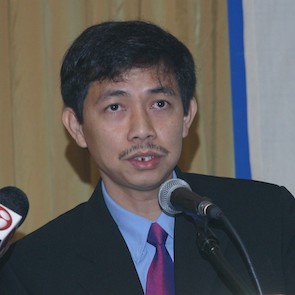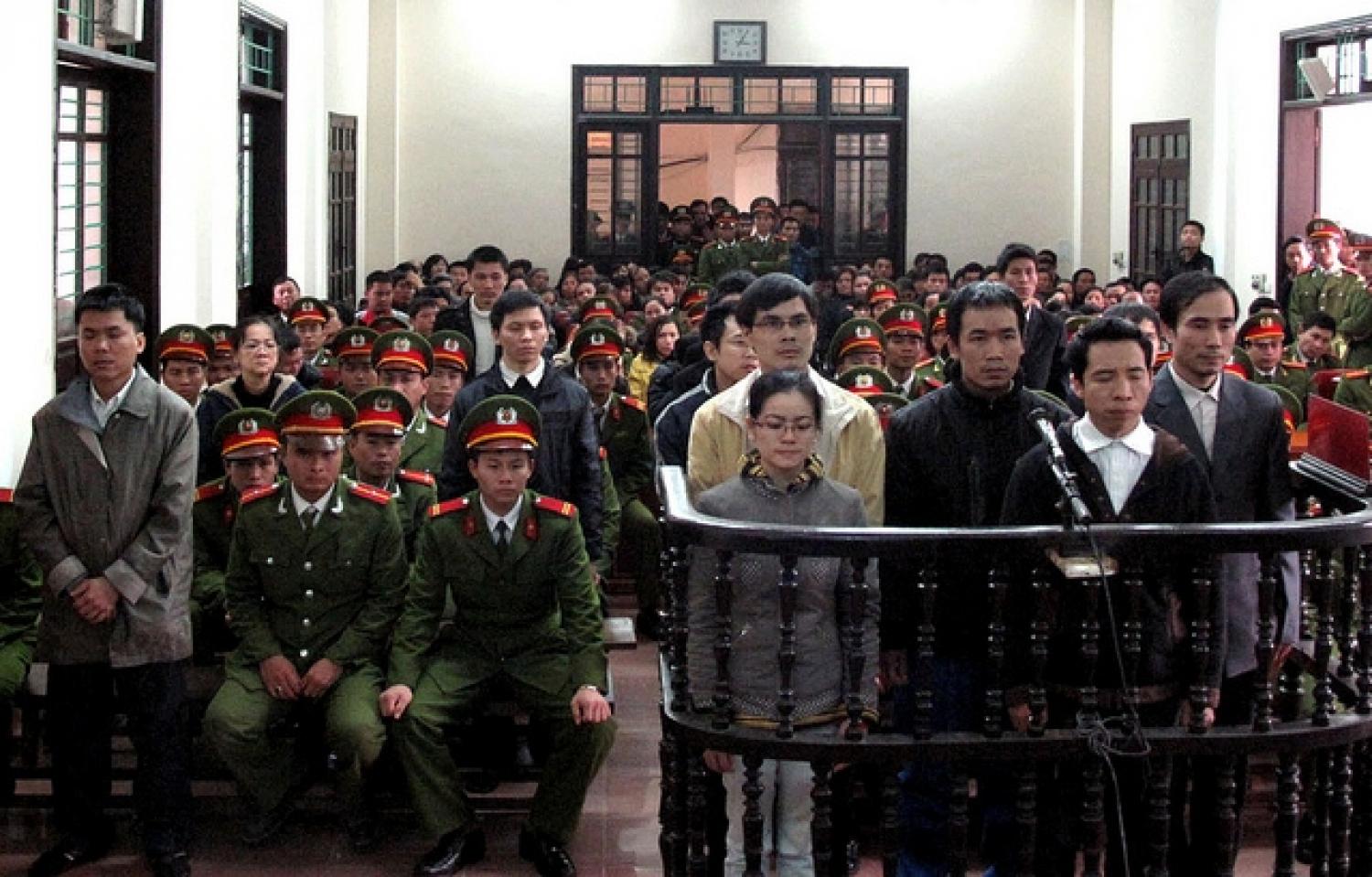
Trần Huỳnh Duy Thức
In October 2020 he started a hunger strike to demand that his sixteen-year prison sentence be reduced in line with the Penal Code of 2015. When he was visited by family during this time, he passed a note to them saying, “You must continue our struggle for human rights and use my death as inspiration to push our struggle forward through the end of this year and into the next”.
Engineer, entrepreneur and blogger Trần Huỳnh Duy Thức advocated for social and economic reforms in Vietnam before being arrested on 24 May 2009. In 1993 he founded EIS, a business that went on to become an international internet and telephone line provider. He also founded the Chan Research Group to study the economy, politics and society of Vietnam and other countries in the region.
Trần Huỳnh Duy Thức’s activism took the form of a personal blog which he penned under the name Tran Dong Chan (Change We Need). In this blog he focused on local issues of inequality, social ills and the risks of a possible socio-economic crisis.
In 2008 he also started co-writing a manifesto entitled "The Path of Viet Nam" which assessed the current situation in Vietnam, and offered a comprehensive set of recommendations for governance reform centred on human rights.
On 24 May 2009 Trần Huỳnh Duy Thức was arrested on charges of “theft of telephone lines”. Authorities later initiated a criminal investigation under Article 88 of Vietnam’s 1999 Penal Code for “conducting propaganda against the state,” but subsequently charged him with “attempting to overthrow the people’s administration” under Article 79 of the same Penal Code. On 20 January 2010, after 8 months in pre-trial detention, Trần Huỳnh Duy Thức was tried, convicted and sentenced to 16 years’ imprisonment with five years’ house arrest on release.
His trial fell short of international standards for fair trial, disregarding the presumption of innocence and right to a defence. According to observers, the prosecution provided no evidence to support the indictment and the judges deliberated for only 15 minutes before returning with the judgment. This same judgement took 45 minutes to read which would strongly suggest that it had been prepared in advance of the hearing. His sentence was upheld on appeal in a closed trial in 2012.
Since his arrest, Trần Huỳnh Duy Thức has faced several hardships in prison, including limited access to his family and subsequently being transferred to a prison located at more than a full day’s drive from where his family live, with no justification given for the transfer. According to a 2013 Radio Free Asia report, the defender was held in solitary confinement from August 2012 to March 2013, and denied access to books, newspapers and writing materials. In August 2012, the U.N. Working Group on Arbitrary Detention (WGAD) adopted an opinion stating that Trần Huỳnh Duy Thức's imprisonment was arbitrary, and requested that the Vietnamese government remedy the situation in accordance with the Universal Declaration of Human Rights and the International Covenant on Civil and Political Rights.
In November 2015, the National Assembly of Vietnam issued a new Penal Code which adjusted the maximum sentence on the charges brought against Trần Huỳnh Duy Thức to five years imprisonment. However, the human rights defender continues to serve the sixteen-year sentence handed down to him in 2010.
While in prison, Trần Huỳnh Duy Thức has led various hunger strikes and has been proactive in defending and advocating for the rights of fellow prisoners. In October 2020 he started a hunger strike to demand that his sixteen-year prison sentence be reduced in line with the Penal Code of 2015. When he was visited by family during this time, he passed a note to them saying, “You must continue our struggle for human rights and use my death as inspiration to push our struggle forward through the end of this year and into the next”.
On 14 January 2021, Trần Huỳnh Duy Thức's family was informed by a reliable source that the human rights defender had spent a number of days on intravenous drips after his health had severely deteriorated. The same information had not been relayed to the family by officials at Detention Camp 6, where he is currently being detained.
In total, the human rights defender has undertaken three hunger strikes since October 2020 in a bid to persuade the Vietnamese Supreme Court to review his case in line with the new Criminal Code of 2015. As a result his condition is very weak. He resolutely refuses to be released into exile to the United States telling his family that he “will not go anywhere and will stay side-by-side with his people inside the country through difficult times”. He is due for release on 24 May 2025.


